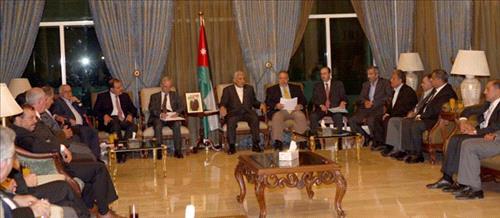Ammon News - AMMAN (Petra) — The government will draft a new elections law that abolishes the one-person, one-vote formula and revisits the national list system to ensure a wider representation of political parties, according to Prime Minister Abdullah Ensour.
At meetings with presidents of professional associations and trade unions on Wednesday and secretaries general of political parties on Thursday, Ensour said the government, in continuation of political reform efforts, will also re-examine the distribution of electoral districts to ensure fair representation of all in Parliament.
Under the current Elections Law, citizens had two votes, one at the local district level for an individual candidate, and one at the national level for a closed ticket fielded by a political party or group.
Twenty-seven Lower House seats out of the 150 were allocated for national level candidates, while 15 were allocated for the women’s quota.
Electricity prices
The premier said households will be excluded this year from the gradual increase in electricity prices, noting that in 2014, only homes with electricity bills over JD50 will be affected by the 15 per cent increase.
He briefed the leaders of political parties and syndicates on the country’s main economic woes and the ways the government proposes to address them.
The country’s domestic and external debts have reached around $22 billion, he said, noting that a large part of it is because of the continued losses of the National Electric Power Company, with the electricity sector losing around $1.2 billion every year.
Ensour added that unemployment is the most pressing problem that the government is currently addressing by implementing capital projects, stressing that JD1.2 billion have been allocated for these projects in this year’s budget.
At the meetings, which were also attended by several ministers, the attendees stressed that the government’s economic measures should not affect members of the middle and low-income class.
They also called for safeguarding freedoms and involving political parties more actively in decision making.
In addition, they urged the government to follow up on the issue of Jordanian prisoners in Israeli jails.
The gatherings were part of a series of government meetings with civil society representatives to discuss local issues and take their views and suggestions into account.
